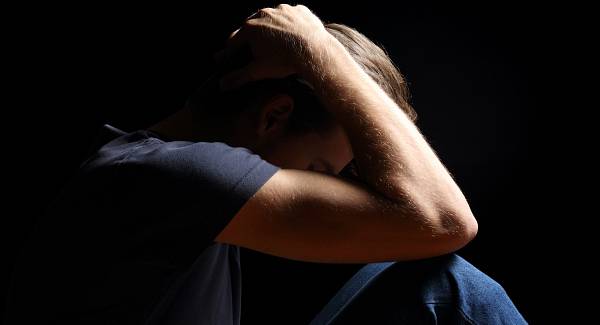Islamabad: Young people who identify as goths may be at increased risk of depression and self-harm, a study suggests.
Researchers could not fully explain the link, but suggest a tendency for goths to distance themselves from society could play a part, according foreign TV channel.
They say though the vast majority of teenage goths will have no problems, an important minority may need extra support.
'Ostracised and isolated'
The goth movement - with its emphasis on black clothes, heavy black make-up and sometimes gloomy music with doom laden lyrics - has been attracting adolescents for many years.
In this study, researchers looked at 3,694 15-year-olds based around Bristol.
They found the more young people identified with the goth subculture, the higher their likelihood of self-harm and depression.
Those who saw themselves as part of the goth group were already more likely to have shown signs of depression before the age of 15 and to have been bullied in the past.
But scientists argue the link remains even once these factors are accounted for.
Researcher Dr Rebecca Pearson, from the University of Bristol, said there could be many reasons behind the trend, including the possibility that teenagers susceptible to depression were attracted to the goth way of life.
She added: "The extent to which young people self-identify with goth subculture may represent the extent to which at-risk young people feel isolated, ostracised or stigmatised by society."
Alternative life: Nattalie's story:
Nattalie Richardson, 29, is from Norfolk. She says her depression developed before she became a goth.
"I personally think that kids who are depressed or have mental illnesses are drawn to 'alt' style as a way of appearing as different on the outside as they feel on the inside," she says.
"I know that was the reason I started dressing differently and became alternative. That and the image went with the music I listened to that seemed to speak to the jumble that was inside my head and help me realise I wasn't the only one who felt the way I did as a teenager.
"I was depressed and ill before I was a goth."
'Group protection'
Blogger and self-identifying goth Tim Sinister told Foreign Radio channel programme that he did not believe teenage goths were more at risk of depression, but simply more open to talking about it.
"The goth scene is more tolerant and open to discussing depression, whereas society as a whole has more stigma around discussing mental health," he said.
Researchers say parents should not attempt to dissuade their children from belonging to a goth group as having friends and identifying with a community could protect them from depression.
Instead, they suggest families should remain vigilant and speak to their children about any concerns.
Prof Kevin McConway, pointed out that the study, which was conducted between 2007 and 2010, dealt with complicated issues that could change over time.
He agreed with the researchers that it was impossible to unpick cause and effect and would be wrong to assume that being a goth increases the chance of depression.
He added: "Even if we can't be sure about the cause, knowing about an association between goth identification and depression or self-harm might allow clinicians to more clearly identify and support those at risk."
For the purposes of this research, teenagers were asked how strongly they identified with the following groups - goths, sporty, populars, jitters/skaters (who skipped school for example), chavs, loners, keeners and bimbos - terms that had their own specific definitions within the study.
The term goth referred to teenagers who had a reputation of rebelling against the norm, in clothing or ideas for example, or avoided conforming to social ideals.
Friday, April 19, 2024
Young goths 'at risk of depression'

8:27 AM | April 19, 2024
8:09 AM | April 19, 2024
Pak economy improving, funds will be provided on request: IMF
9:57 PM | April 19, 2024
Minister advocates for IT growth with public-private collaboration
9:57 PM | April 19, 2024
Judges' letter: IHC seeks suggestions from all judges
9:55 PM | April 19, 2024
Formula 1 returns to China for Round 5
9:05 PM | April 19, 2024
Germany head coach Julian Nagelsmann extends contract till 2026 World Cup
9:00 PM | April 19, 2024
A Tense Neighbourhood
April 19, 2024
Dubai Underwater
April 19, 2024
X Debate Continues
April 19, 2024
Hepatitis Challenge
April 18, 2024
IMF Predictions
April 18, 2024
Kite tragedy
April 19, 2024
Discipline dilemma
April 19, 2024
Urgent plea
April 19, 2024
Justice denied
April 18, 2024
AI dilemmas unveiled
April 18, 2024
ePaper - Nawaiwaqt
Advertisement
Nawaiwaqt Group | Copyright © 2024





